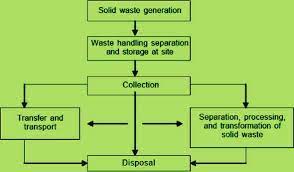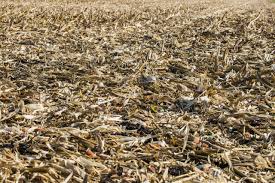The following are the major transformation/treatment of municipal solid waste;
1. Physical Transformation
In physical transformation, no change in physical state is involved. These include: Component separation, mechanical volume reduction and mechanical size reduction.
a) Component separation: – term used to describe the process of separation by manual and /or mechanical means. It is necessary operation in the recovery of reusable and recyclable for MSW.
Read Also : Types of Municipal Solid Waste (MSW)
b) Mechanical volume reduction: – is the term used to describe the process whereby an initial volume of waste is reduced using force or pressure. It is also known as densification.
c) Mechanical size reduction: – is the term used to describe the process whereby size of the waste is reduced. It does not necessarily reduce the volume of the waste. Examples are shredding, grinding and milling.

2. Chemical Transformation
These transformations that involve change of phase (e.g. solid to liquid or solid to gas) in reducing the volume and/or recovering products. The principal processes in chemical transformation include:
- Combustion/chemical oxidations
- Pyrolysis
- Gasification
3. Biological Transformation
This is transformation that involves the use of microorganisms in converting waste to useful materials such as compost and to produce methane. Principal organisms involve in the transformation are bacteria, fungus, yeast and actinomycetes. Two processes are involved during biological transformation:
- Aerobic composting
- Anaerobic digestion
In conclusion, municipal solid wastes are non-hazardous materials produced by households, commercial and institutional activities that include paper, vegetable matter, plastics, metals, textiles, rubber and glass.
Read Also : Characteristics of Municipal Solid Waste (MSW)
Municipal solid wastes changes with society and time as developments brings about changes in the waste created by communities. More complicated wastes are usually introduced into the community like heavy metals, plastic and hazardous substances.
However, with technology available, various techniques can be used to combat the different types of municipal solid wastes produced in order to protect the environment from pollution.

